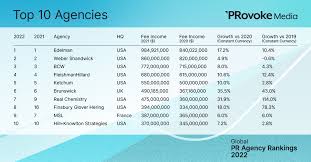Strategic Solutions: Elevating Your Brand with a Top PR and Branding Agency
PR and Branding Agency: Elevating Your Brand to New Heights
In today’s competitive business landscape, establishing a strong brand presence is crucial for success. This is where a PR and branding agency can make all the difference. These agencies are experts in crafting compelling narratives, building brand awareness, and enhancing brand reputation.
PR agencies excel in creating strategic communication plans that help businesses connect with their target audience effectively. They leverage media relations, influencer partnerships, and digital platforms to amplify brand messaging and reach a wider audience.
Branding agencies, on the other hand, focus on shaping the visual identity and personality of a brand. They work on designing logos, creating brand guidelines, and developing a consistent brand image across all touchpoints. A strong brand identity not only differentiates a business from its competitors but also fosters customer loyalty.
When PR and branding efforts are combined, the result is a powerful synergy that elevates a brand to new heights. A cohesive strategy that integrates public relations initiatives with branding activities can create a strong brand narrative that resonates with consumers.
PR and branding agencies work hand in hand to ensure that every aspect of a brand’s communication is aligned with its values and objectives. From crafting press releases to designing engaging social media campaigns, these agencies play a vital role in shaping public perception and driving brand growth.
Whether you are looking to launch a new product, manage a crisis situation, or simply enhance your brand’s visibility, partnering with a PR and branding agency can provide you with the expertise and resources needed to achieve your goals.
So if you want to take your brand to the next level and stand out in today’s crowded marketplace, consider enlisting the services of a reputable PR and branding agency. With their strategic approach and creative solutions, they can help you build a strong brand presence that resonates with your target audience.
Top 9 Advantages of Partnering with a PR and Branding Agency
- Expertise in crafting compelling brand narratives
- Ability to enhance brand awareness and visibility
- Experience in building strong media relations
- Specialisation in creating engaging content for various platforms
- Strategic approach to developing consistent brand messaging
- Proficiency in crisis communication management
- Access to a network of influencers for brand partnerships
- Knowledge of current market trends and consumer behaviour
- Track record of driving brand growth and customer loyalty
Challenges of Engaging PR and Branding Agencies: High Costs, Time Investment, and External Dependence
Expertise in crafting compelling brand narratives
One of the key advantages of partnering with a PR and branding agency is their expertise in crafting compelling brand narratives. These agencies have a deep understanding of storytelling techniques and know how to create engaging narratives that resonate with target audiences. By developing a strong brand narrative, they can effectively communicate the values, mission, and unique selling points of a business, helping to build brand awareness and loyalty among consumers. Their ability to weave together words, visuals, and emotions enables them to create a cohesive brand story that captivates audiences and sets businesses apart from their competitors.
Ability to enhance brand awareness and visibility
One of the key advantages of partnering with a PR and branding agency is their ability to enhance brand awareness and visibility. These agencies have the expertise to craft strategic communication plans that effectively showcase a brand’s unique value proposition to the target audience. By leveraging various channels such as media relations, influencer partnerships, and digital platforms, PR and branding agencies can significantly increase a brand’s visibility in the market, ensuring that it stands out amidst competition and reaches a wider audience. This heightened brand awareness not only boosts recognition but also fosters consumer trust and loyalty, ultimately driving business growth and success.
Experience in building strong media relations
Having experience in building strong media relations is a significant advantage of partnering with a PR and branding agency. These agencies have established connections with journalists, editors, and influencers across various media outlets. By leveraging these relationships, they can secure valuable media coverage for their clients, enhancing brand visibility and credibility. A strong media network allows PR and branding agencies to effectively pitch stories, manage press releases, and navigate the ever-changing media landscape to ensure that their clients’ messages reach the right audience through trusted channels.
Specialisation in creating engaging content for various platforms
One significant advantage of partnering with a PR and branding agency is their expertise in creating engaging content tailored for various platforms. These agencies specialise in crafting compelling narratives, visuals, and messages that resonate with target audiences across different channels such as social media, websites, and traditional media. By leveraging their skills in content creation, PR and branding agencies can help businesses effectively communicate their brand story and key messages in a way that captivates and connects with consumers on multiple platforms.
Strategic approach to developing consistent brand messaging
A key advantage of partnering with a PR and branding agency is their strategic approach to developing consistent brand messaging. By carefully crafting a unified narrative that aligns with the brand’s values and objectives, these agencies ensure that every communication effort resonates with the target audience. This consistency not only reinforces brand identity but also builds trust and loyalty among consumers. Through a strategic approach to brand messaging, PR and branding agencies help businesses create a strong and memorable brand presence that sets them apart in the competitive market landscape.
Proficiency in crisis communication management
One significant advantage of partnering with a PR and branding agency is their proficiency in crisis communication management. These agencies are equipped with the expertise and experience to navigate challenging situations effectively, providing swift and strategic responses to mitigate potential damage to a brand’s reputation. By having a well-prepared crisis communication plan in place, PR and branding agencies can help businesses maintain transparency, manage public perception, and uphold trust during times of adversity.
Access to a network of influencers for brand partnerships
One key advantage of partnering with a PR and branding agency is the access to a vast network of influencers for brand partnerships. These agencies have established relationships with influencers across various industries and platforms, allowing businesses to tap into this valuable resource to amplify their brand messaging and reach a wider audience. By leveraging these influencer partnerships, businesses can enhance their brand visibility, credibility, and engagement with their target market, ultimately driving brand growth and success in today’s competitive market.
Knowledge of current market trends and consumer behaviour
A significant advantage of partnering with a PR and branding agency is their in-depth knowledge of current market trends and consumer behaviour. These agencies stay abreast of the latest industry developments, consumer preferences, and emerging trends, allowing them to tailor communication strategies that resonate with target audiences. By leveraging this insight, PR and branding agencies can create impactful campaigns that capture consumer attention, drive engagement, and ultimately strengthen brand positioning in a competitive market landscape.
Track record of driving brand growth and customer loyalty
A significant advantage of partnering with a PR and branding agency is their proven track record of driving brand growth and fostering customer loyalty. These agencies have the expertise and experience to develop strategic communication plans that resonate with consumers, differentiate brands from competitors, and ultimately lead to increased brand awareness and customer engagement. By leveraging their knowledge of effective PR tactics and branding strategies, these agencies can help businesses establish a strong brand presence that not only attracts new customers but also nurtures long-term loyalty among existing ones.
Costly services
One significant drawback of PR and branding agencies is the high cost of their services, which can pose a challenge for small businesses or startups operating on limited budgets. The fees charged by these agencies for their expertise in strategic communication, media relations, and brand development may be prohibitive for businesses that are just starting out or have financial constraints. This financial barrier can make it difficult for smaller enterprises to access the valuable resources and professional assistance that PR and branding agencies offer in enhancing their brand presence and reputation.
Time-consuming process
One significant drawback of engaging with a PR and branding agency is the time-consuming nature of developing effective strategies. Crafting impactful PR campaigns and establishing a strong brand identity demands meticulous research, careful planning, and strategic execution. This process can be lengthy and resource-intensive, requiring thorough analysis of market trends, competitor activities, and consumer preferences. As a result, businesses may find themselves investing considerable time and effort into the collaboration with a PR and branding agency before seeing tangible results.
Dependency on external expertise
One significant drawback of partnering with a PR and branding agency is the dependency on external expertise. Entrusting your brand’s reputation to outside professionals can be risky if not carefully managed. Reliance on an agency for strategic communication and branding decisions may result in a lack of direct control over crucial aspects of your brand’s image and messaging. It is essential to maintain a balance between leveraging the expertise of external agencies and retaining internal oversight to ensure that your brand’s identity remains authentic and aligned with your values.




